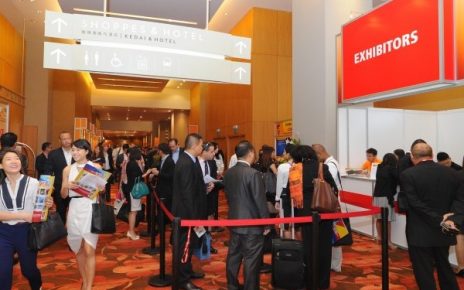On January 19, 2021, the Executive Council of the UNWTO (World Tourism Organization) should appoint the next UNWTO Secretary General, an appointment that will have to be ratified in October by the General Assembly of the member countries.
In Italy, this deadline has not aroused much interest as often happens with the events of the United Nations to whose system UNWTO belongs. This is an organization based in Spain of which Francesco Frangialli was Secretary General from 1997 to 2009.
This lack of interest may be surprising if we consider that the UNWTO’s field of competence is of primary importance for Italy. In 2019, it contributed 13% to GDP, employing 4.2 million people, and great prospects were expected for 2020 with a differentiation of the tourist targets and, ironically, also aiming to be 2020 the year of Italy-China culture with the forecast of an increase in relative flights.
The predictions did not come true and the sector was among the hardest hit by the effects of the COVID-19 pandemic. A 34 million decrease in foreign presences caused an estimated loss of 8000 million euros of which the percentage related to accommodation, restaurants, and services represents over 60%. The need to control the spread of the pandemic has penalized domestic tourism with not a few controversies.
The impact on employment has been dramatic. Between June 2019 and June 2020, it decreased by 3.6% (841,000 jobs) and for about a third, this decrease is attributable to the sector with a relative incidence of 13% in catering and almost 30% in housing.
The sector is, therefore, central to post-pandemic recovery, and the UNWTO will inevitably be an important player. If the predictions of many epidemiologists are true, the effects of the vaccine will be effective towards the end of 2021 and, therefore, the elected Secretary General will have the gigantic burden of directing the recovery.
In the best of all worlds, one would expect his or her selection to be made by choosing from a wide range of candidates. Surprisingly, this will not be the case. There are only two candidates: the current Secretary General, Mr. Zurab Pololikashvili from Georgia, and the President of the Agency for Culture and Antiquities of Bahrain, HE Mai Al Khalifa.
This is not evidence of disinterest in the position. Six other people had expressed their intention to submit their candidacy but were unable to provide the required documentation in time given the short time between the opening and closing of applications.
This brevity was justified by the desire that Spain, the home country of the organization, manifested that the session of the Executive Council coincide with the realization of the FITUR Fair in Madrid, and this led to the choice of dates of January 18-19.
The pandemic made it necessary to postpone the Fair to May. It might seem logical that maintaining the connection between the two events, the vote was also moved to May. Such a request was not accepted. Indeed, a quite unusual fact occurred, namely profound perplexities about the procedure and the timetable were publicly expressed in cautious diplomatic language although not without implications by Mr. Frangialli and Mr. Taleb Rifai, the Secretary General who followed him in his office from 2009 to 2017.
It is not necessary to resort to Hegel to understand the rationality of this reality and understand how it was possible to ignore the authoritative opinions of the last two Secretary Generals.
The insistence on keeping the vote in January was interpreted by many as a tool that could facilitate re-election of Mr. Pololikashvili and was criticized as being far from the impartiality that must at all times ensure the highest office of an international body.
The rejection of the change requests did not result in the absence of alternative candidacies only because Bahrain was able to present the authoritative candidacy of HE Mai Al Khalifa, but according to many, it also had another purpose – to make it difficult for many countries to be represented in the vote at the highest level with their ministers of tourism forcing them to fall back on representation through the ambassadors who moreover are not all residents in Spain.
It might seem that it doesn’t really matter if a country is represented by its tourism minister or its ambassador. It is not so. The secrecy of the vote can allow voters personal choices. In this regard, what the former Secretary General Frangialli writes in an article of memoirs available online is illuminating: “But some heads of delegation are family members of the UNWTO and may have their own inclinations. Perhaps more than in other comparable international institutions, the personal dimension comes into play.”
It would be naive to ignore that ambassadors in Madrid certainly have a habit of dealing with an official with whom they interacted during four years and who has a long history of presence in Madrid and in the organization and rule out that this could undermine their loyalty to the country represented.
This is not the only criticism of the outgoing Secretary General. It was pointed out that even before the date on which the candidacies were opened, many of his institutional actions seem to be part of an electoral campaign characterized by an intense selective program of visits, which favored the member countries of the Executive Council.
This sheds particular light on the intense program of his official visit to Italy last July, motivated by the launch of the #RestartTourism campaign, “a global initiative through which the OMT intends to favor the reopening of the borders to tourism and the recovery economic through coordinated measures between the public and private sectors in full protection of the safety of citizens.” During his visit, he met with President Conte; Ministers Di Maio and Franceschini; the President of Lombardy, Mr. Fontana; the Mayors of Rome and Milan, Ms. Raggi and Mr. Sala; and with the regional Minister for Tourism of Veneto, Mr. Caner. His attention to Italy was confirmed by the message of good wishes to Undersecretary Bonaccorsi for the beginning of the Italian presidency of the G20.
So much interest is understandable for Italy’s leading role in tourism, and also why not? Because last year, Italy was Vice-chair of the Executive Council of the OMT, and in this capacity, the guarantor of the transparency of the organization of this election.
The traditional active participation of Italy in the organizations of the United Nations system cannot fail to confirm that Italy refers and will refer to those principles of transparency, in this as in any election in international bodies, determining its choices with the double criterion of the interest of the organization and, of course, of the national one.
Compromising in an international organization considered to be minor means exposing oneself to being spectator of similar underground agreements in others and to the risk of seeing a controversial vote overturned at the time of its ratification by the General Assembly of the organization.
Therefore, on the basis of the foregoing, a moral suasion tending to postpone the vote is probably the minimum that can be expected from Italy.
However, it is possible that the vote will still take place, and this eventuality requires analyzing which of the two candidates is preferable, in the name of Italy’s interest.
We do not underestimate the possible interest in good relations with Georgia, which is easily understood by Italy’s relations with the Caucasian countries in the energy sector. However, equally and stronger reasons should rather suggest supporting HE Mai Al Khalifa’s candidacy.
There are geopolitical reasons in the first place. For Italy, the stability of the Mediterranean and the Middle East is crucial. Bahrain and the Gulf countries in general are important in the region. This may also have connection with the major regional initiative of the Eastern Mediterranean Gas Forum, and this would compensate for the previous observation in favor of Georgia.
Tourism in Italy has a unique feature which constitutes its pillar. The country has an extraordinary wealth of World Heritage sites, no less than 55, the largest number in a country, an honor shared with China, in addition to the wealth of museums. For Italy, therefore, museum and cultural tourism is central.
Since 2006, when she was Minister of Culture of her country, HE Mai Al Khalifa promoted a global initiative, “Investing in Culture,” which has carried out 20 cultural tourism projects, restoration of historic buildings and World Heritage sites to over $125 million.
This precedent makes her proposal to establish a Global Assistance Fund for the reactivation of international tourism when the pandemic crisis is overcome, worthy of attention and credible and is a guarantee of sensitivity to an issue of priority importance for Italy.
The reactivation that is needed requires vision and wide-ranging projects. Thinking that one can do it alone or within the bilateral actions illustrated in the UNWTO statement on meetings in Italy is illusory.
The model proposed by HE Al Khalifa and her wide-ranging vision transcend the area of tourism and can be borrowed from other international agencies, some of which, such as FAO, are of great interest for Italy and with reactivation problems when the pandemic will be over similar to those of the UNWTO.
The budget structure of these agencies is based on the statutory contributions of the countries to which are added the so-called voluntary contributions with a defined purpose. Consequently, the programs thus implemented only in a very broad sense fit into the long-term ones of the organization and often rather reflect the result of bilateral negotiations between donors and beneficiaries in a process in which the role of the agency is intermediate between that of broker and notary.
While this note was about to be published, a note in Italian finally appeared on the web.
It argues that the letter from the two previous Secretary Generals would be evidence of a power struggle to continue (sic!) to control UNWTO and states that “The current leaders … believe that the date set for the elections cannot be postponed because the agreement of the executive committee cannot be postponed.”
The first statement speaks for itself. What greater continuity than a re-election? Nor does the explanation of why a postponement would be impossible explain anything. Indeed, it would seem that the haste of a quick publication has produced the blind kitten when the note refers to a postponed (?) agreement. (Perhaps it was meant revised, canceled, ignored).
The letter has been known for a long time. Today’s note seems to indicate that common sense and the need to guarantee the OMT the standards of transparency and fairness that (almost) all of us expect from a United Nations organization are emerging. We are confident, or rather certain, that the Government of Italy will do well.
The World Tourism Network called for Decency in the UNWTO Elections, and its campaign has gained worldwide support.




